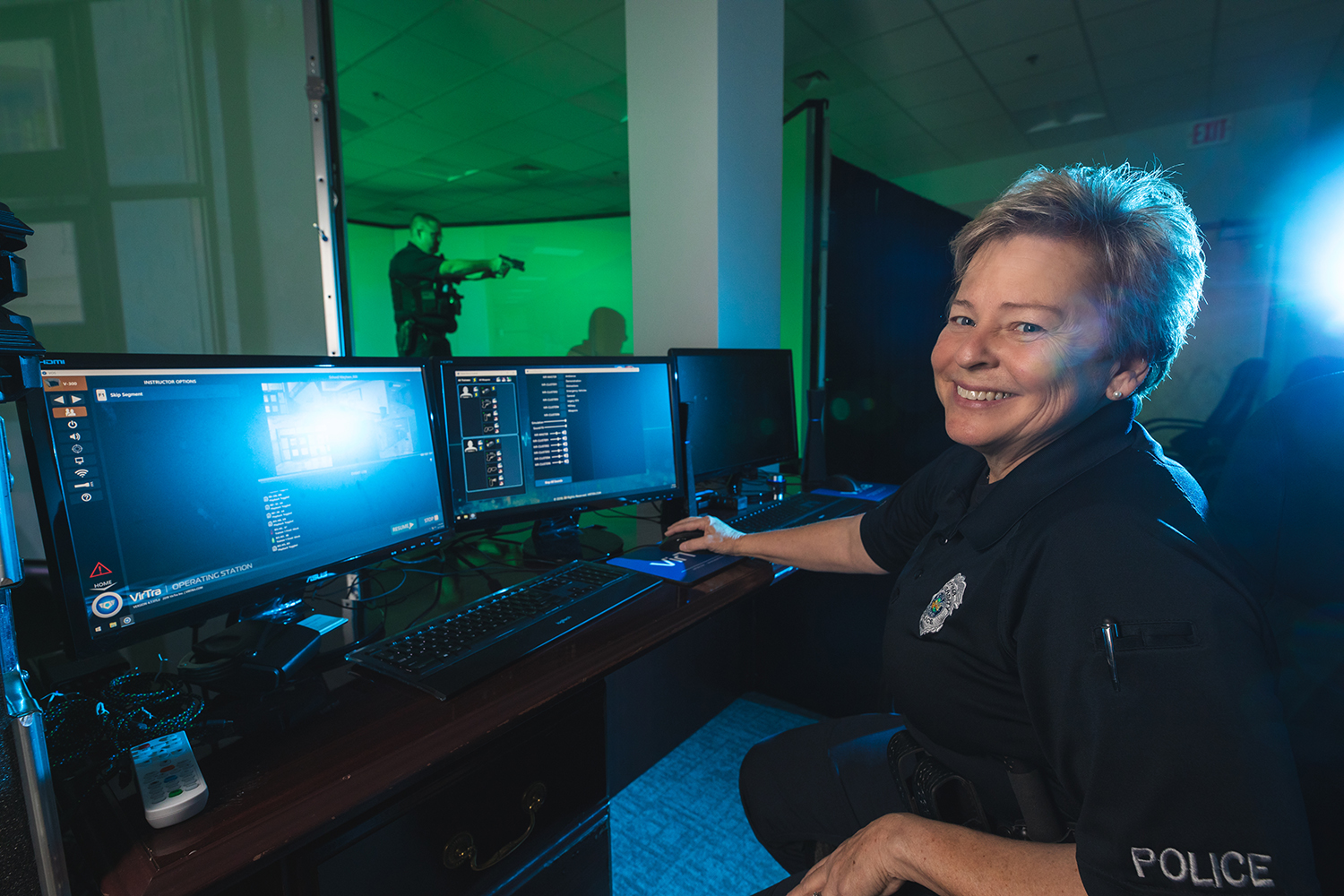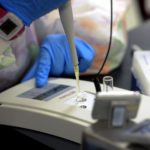UWF Center for Behavior Analysis enhances ROTC, law enforcement training with virtual simulation system
A virtual simulation system at the University of West Florida Center for Behavior Analysis is providing hands-on training for UWF’s Army ROTC cadets and local law enforcement agencies. The VirTra 300 LE firearms training simulator is a virtual reality system designed to incorporate applied behavior analysis with behavior-based fluency.

“Behavior analysts strive to understand behavior and why it occurs,” said Dr. Leasha Barry, director of the UWF Center for Behavior Analysis. “We assess needs, identify goals and formulate interventions to help people overcome barriers, acquire skills and enhance their lives.”
Freshman and sophomore cadets are utilizing the system for introductory weapons training and basic training for weapon zeroing and range qualification. Upperclassmen cadets are using the system to prepare for the four-week basic camp at Fort Knox that they are required to attend during the summer of their junior and senior years. The advanced training helps provide a safer, simulated environment while maintaining immersion.
The simulator and related curriculum are designed to develop fluent decision-making in high-stakes scenarios, while providing simultaneous deescalation training and practice maintaining situational awareness. Users step into a 300-degree immersive experience, surrounded by a five-screen integrated projection system displaying interactive, real-world scenarios officers may face. The experience is intense with surrounding visual, auditory and tactile stimuli, including simulated return fire using a taser pulse.
“This unique opportunity facilitates heightened physiological responses while providing a safe environment in which to practice,” said Dayna Beddick, associate director of the UWF Center for Behavior Analysis. “The collaboration between behavioral scientists and police officers creates an ideal circumstance to support officer performance while conducting research on best practices in training protocols.”
The system also serves the UWF Police Department, Pensacola Police Department and Escambia County Sheriff’s Office deputies.
“Through this transparent and often humbling experience in the simulator, the community can establish a more meaningful relationship with those who have taken an oath to serve and protect their community, improving the safety and well-being of both officers and citizens,” said Marc Cossich, UWFPD chief.
The system allows customization of scenarios, utilizing local backgrounds to increase the realistic immersion of the training to familiar locations for area law enforcement agencies. Additionally, specific Florida Department of Law Enforcement firearms qualification standards are programmed in the system, allowing repetitive practice on basic skills before using live ammunition, which increases safety and saves money.
As of Fall 2021, the UWF Center for Behavior Analysis houses the only five-screen, fully equipped system of this caliber in the Panhandle, with the closest system located in Orlando.
“Technology has always provided us with innovative means to solve human problems,” Barry said. “The science of behavior is unique in that it recognizes we cannot simply have technology and expect it to change lives. It is important to understand human behavior and how assistive technology can best be utilized to enhance our experience.”
Barry began offering courses in behavior analysis at UWF in the early 2000s, and she collaborated with community stakeholders to help establish the Autism Center of the Studer Family Children’s Hospital at Sacred Heart, with one of her first graduates chosen as its inaugural leader. In Fall 2018, she advocated for the University to expand on her course offerings, community collaborations and research to create the Center for Behavior Analysis.
The UWF Center for Behavior Analysis provides a collaborative space where higher education, socially valued service and applied research synthesize into meaningful applications. The center is based within Argo Village and features two conference rooms, administrative offices and space for collaborations with community partners.
To learn more about the Center for Behavior Analysis, visit uwf.edu/cba.


